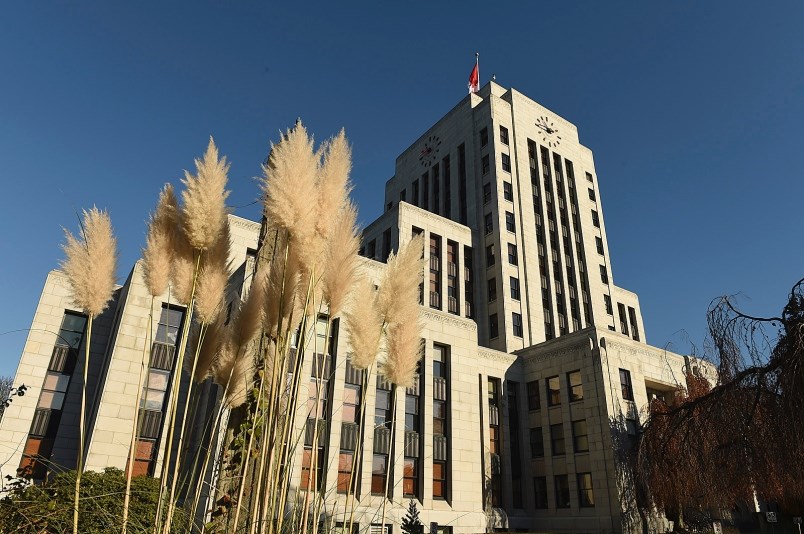More than 90 per cent of the City of Vancouver’s business with suppliers since 2009 has been with Canadian companies, while only eight per cent were with the United States.
Information supplied to BIV from the city’s communications department showed that 29,550 of the 32,000 vendors — or 91 per cent — over the past 15 years were Canadian.
United States’ suppliers totalled 2,451 while the combined total of other countries' suppliers was 189. In 2024, the city did direct business with 224 U.S. vendors, which represented a spend of approximately $6.1 million.
How tariffs could affect the purchase of supplies from the United States and how Vancouver businesses will respond are unclear, but those issues are expected to be discussed at a special council meeting next week.
Mayor Ken Sim called for the meeting — which is scheduled for Feb. 11 at 9:30 a.m. — during a council session Tuesday. The mayor’s office didn’t provide further details on the framework of the meeting when reached Wednesday, but said citizens will be able to speak to council.
Sim’s announcement came after Green Party Coun. Pete Fry introduced a motion titled, “Choose Canada, tariffs and buy local imperative.” Sim got support from Fry and the other councillors to postpone consideration of the motion until after the special council meeting.
'Very precarious times'
Prime Minister Justin Trudeau announced Monday that U.S. President Donald Trump has given a 30-day pause on potential tariffs to allow Canada and Mexico to develop plans to bolster borders to stop the flow of immigrants and drug smugglers.
“This pause gives us a crucial opportunity to engage meaningfully with senior levels of government and local businesses, ensuring that we take a thoughtful, strategic and coordinated approach,” Sim told council.
“It's important that we carefully consider how Vancouver can navigate future tariffs and remain resilient in an unpredictable trade environment.”
Added Sim: “I do want to acknowledge councillor Fry for bringing this up. In this chamber, we may not agree on everything, but I can tell you I think we're all very united when it comes to supporting Canada and everyone who calls Canada home.”
Coun. Mike Klassen noted the timing of the potential tariffs, and how many British Columbians are still rebuilding from the COVID-19 pandemic.
“We are really being drawn into some very precarious times as we, I think in many ways, are starting to see our city and the province get back on its feet after the impacts of the pandemic,” Klassen said. “And this is certainly going to, unfortunately, perhaps slow and impact those efforts.”
Team Canada approach
It wasn’t clear at Tuesday’s council meeting whether Fry’s motion will be heard at the conclusion of the meeting regarding tariffs, or at another date.
Fry’s motion requests council “affirms and signals that the City of Vancouver supports the Team Canada approach to align local, provincial, and national priorities as necessary to counter foreign policies designed to harm the Canadian economy or sovereignty.”
His motion requested staff initiate an urgent high-level review of capital projects, suppliers, procurement, and trade agreement exposure and opportunities to buy local-buy Canadian and report back as soon as possible.
Fry also wants council to direct the city’s business and economy office to immediately begin work with local business and community economic development organizations, including business improvement associations and the Greater Vancouver Board of Trade to explore opportunities “to initiate and promote a new targeted buy local-buy Canadian campaign in response to tariffs.”




